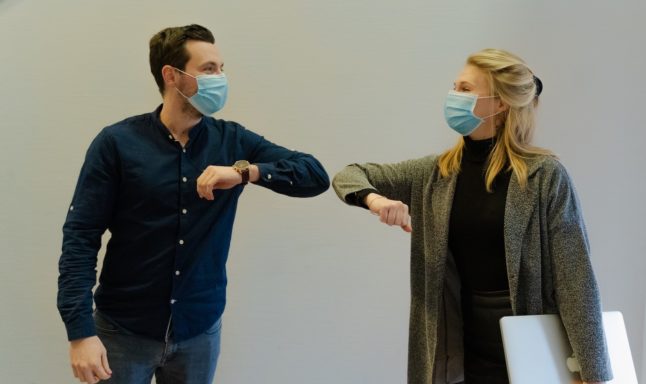While the worst of the Covid pandemic is long over, and experts don’t expect it to re-emerge with the same strength and health consequences as it had in 2020, new cases have been reported in the past weeks.
Wastewater analysis, one of the means employed by health officials to measure the presence of coronavirus, indicates a viral load that is at least five times higher than usual, with values “now almost as high as in some previous Omicron-related waves,” Christoph Ort, spokesperson for Eawag Institute, which traces Covid viruses in 14 wastewater treatment plants in Switzerland, told the media.
What does this mean?
According to Federal Office of Public Health (FOPH), the most common sub-variant in Switzerland right now is the highly transmissible XBB, also known as ‘Kraken.’
The Eris and Pirola variants, which circulated in the summer and early fall are also still present.
While none is nearly as dangerous (at least for most people) as the early Alpha and Delta viruses, which claimed hundreds of thousands of lives in the early stages of the pandemic, there is a reason for concern nevertheless.
“It’s a start of a small wave,” said Rudolf Hauri, head of the Cantonal Doctors’ Association.
“More people are being admitted to hospitals again with, or because of, coronavirus. There are also new cases in intensive care units, but these are generally people with a medical history.”
Should you be worried?
While the number of people with serious Covid-related complications is not expected to be as high as previously, the rise in the number of infections should not be trivialised either, infectious disease specialists say.
This is especially important for people in the high-risk category — those over 65 or suffering from chronic illnesses — who can get quite sick if infected with the new variants, according to FOPH.
This is all the more important as the flu season is about to begin in Switzerland as well, and the confluence of both illnesses, plus other respiratory viruses that typically circulate during the winter, can be very risky.
What can you do to protect yourself?
Other than adopting the same protective measures as those during the pandemic — that is, washing hands, avoiding close contacts and crowded spaces, and wearing masks where needed — health officials also recommend top-up shots, for both Covid and flu.
READ ALSO: Who should get top-up Covid and flu jabs in Switzerland?



 Please whitelist us to continue reading.
Please whitelist us to continue reading.
Member comments